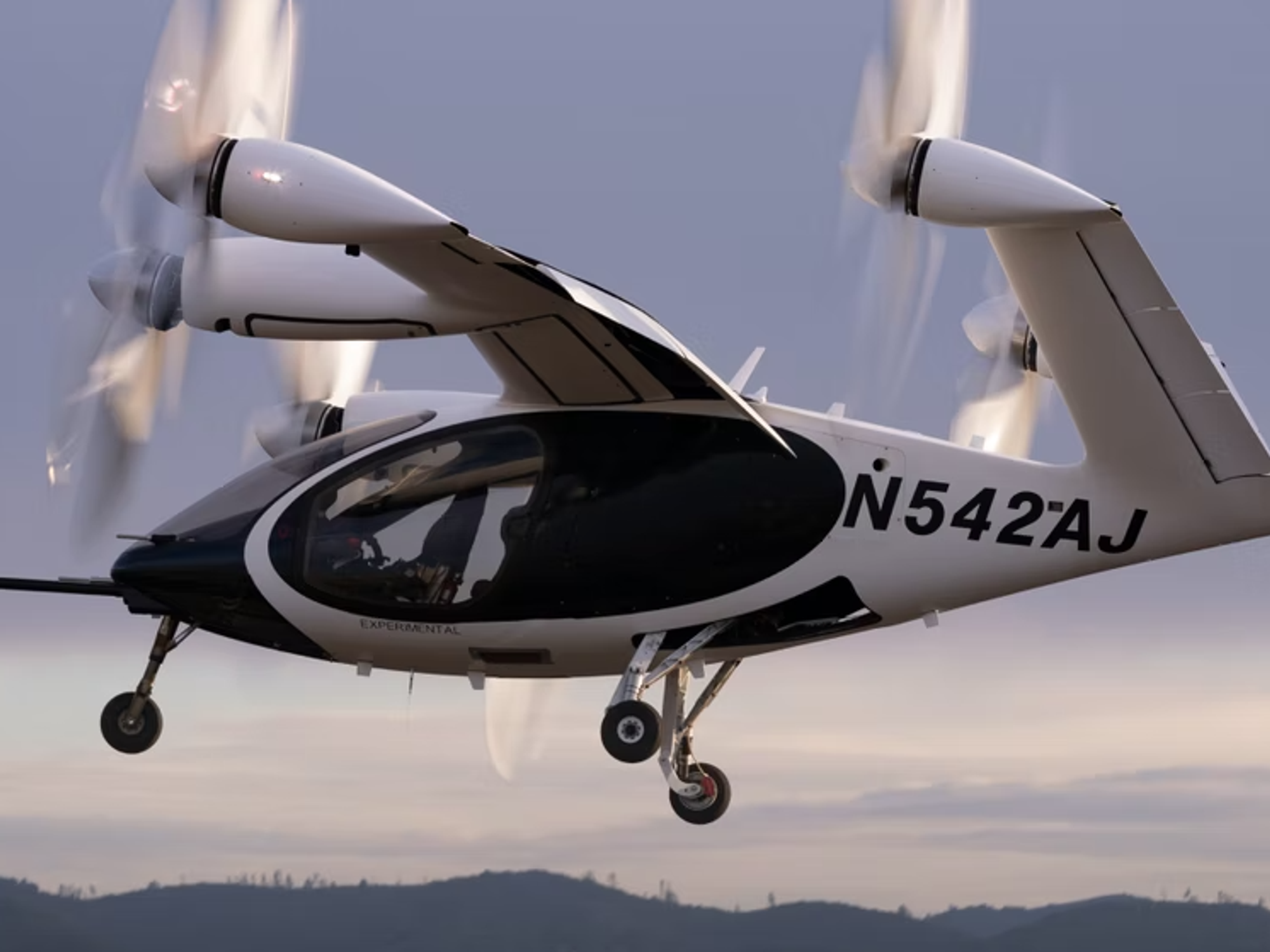Joby Aviation's Ambitious Plans to Dominate the Air Taxi Space
Samson Amore is a reporter for dot.LA. He holds a degree in journalism from Emerson College. Send tips or pitches to samsonamore@dot.la and find him on Twitter @Samsonamore.

Turns out, it’s incredibly expensive to get an air taxi startup off the ground. At least, that’s what Joby Aviation is learning as it claws its way towards an ambitious 2025 liftoff deadline.
The Santa Cruz-based company is one of several vying for a prime spot in the electric vertical take-off and landing (eVTOL, for short) industry race, but it’s also one of the oldest. Formed in 2009, the company went public in August 2021, and valued at $4.5 billion, thanks in part to backing from big-name transport companies including JetBlue, Delta Airlines, Toyota and Uber. Toyota is Joby’s largest outside shareholder; it’s invested roughly $400 million to date.
Joby’s vision is that it can populate the skies of Southern California and later the greater U.S. with electric aircraft that can be used as ride-shares in the air. Think of it as Uber for the skies. The small crafts will seat one pilot and up to four riders, and could reach top speeds of up to 200 miles per hour.
If Joby and other competitors (like Silicon Valley-based Wisk Aero, Long Beach-based Odys or Skyryse, headquartered in Hawthorne) have their way, the congestion on Los Angeles’ freeways could one day be replaced with traffic in the air.
Although it reported lackluster performance in its May 3 first quarter earnings report, Joby has also seen a recent influx of cash. The company noted it lost $113.4 million, which was $51 million more than the same time last year. The company is far from profitable, and chalked the growing losses up to increased operating costs.
But Joby also recently cinched an additional equity investment from Baillie Gifford, a U.K.-based investment manager and early backer. It bought roughly 44 million shares in Joby, worth a total $180 million. In its earnings report, Joby said that cash will help it secure “near-term revenue,” likely in the form of contracts for its future air taxi services. Joby founder JoeBen Bevirt told dot.LA the company isn’t looking to raise any more capital in the near future.
Having ended its first quarter with $978 million in on-hand cash, much of which will be used to develop and manufacture its electric aircraft, as well as get it certified for flight by the Federal Aviation Administration, Bevirt noted Joby has plenty of runway to execute on existing contracts and secure new ones.
“The [Baillie Gifford] investment will accelerate early production so we can capitalize on revenue opportunities like that presented by the DoD contract extension without affecting the funds we already have available to support us through the certification process,” Bevirt noted.
Bevirt added that “we believe we’re very close to this future becoming a reality,” and said that the plan is still to roll out commercial passenger air taxi service to a yet-undisclosed “small number of select cities” by 2025. “There’s a lot of work to be done, but we’re confident in our path forward,” he said.
Joby also gained more funding for its contract to provide the U.S. Air Force with electric helicopters – an additional $55 million, extending the total contract value to more than $130 million. In addition to working for the Air Force, Joby now has relationships with the wider Department of Defense, and plans to conduct flight tests for the Marine Corps. According to the company, the Army and Navy have also expressed interest in electric aircraft, though those divisions haven’t inked contracts yet.
The Air Force is rapidly investing in new technology, and the program Joby’s part of is the government’s only investment into electric aircraft. One of the main goals of the USAF is to spur air taxi companies to accelerate their development by engaging them in an “air race” for contracts; In total there’s more than $1 billion of government funding at stake.
Bevirt said the contract “comes at a pivotal moment in history where the US government is keenly interested in leadership in electric aircraft.” He added that the White House has said advanced and clean air mobility are its top priorities, and noted, “there is tremendous enthusiasm from the government and armed forces for the commercialization of this tech.”
Samson Amore is a reporter for dot.LA. He holds a degree in journalism from Emerson College. Send tips or pitches to samsonamore@dot.la and find him on Twitter @Samsonamore.



 Image Source: Tinder
Image Source: Tinder Image Source: Apple
Image Source: Apple
